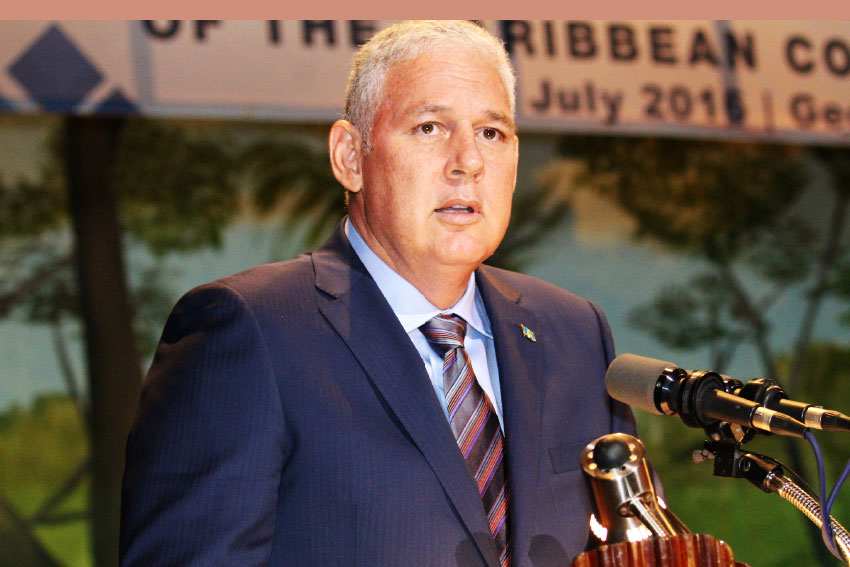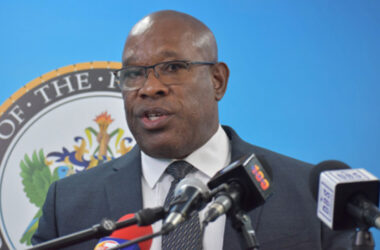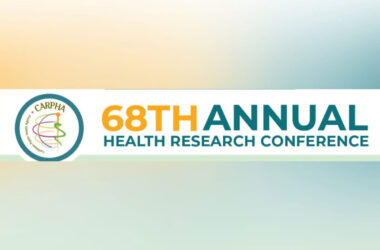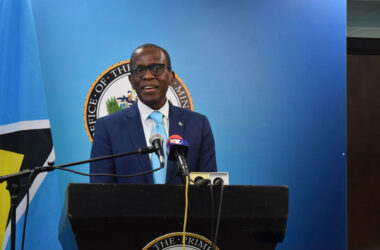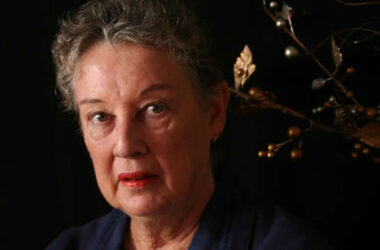PRIME Minister Allen Chastanet was in a reflective mood last Thursday, in his joint press conference with Secretary General of the Commonwealth, Baroness Patricia Scotland, and made clear his intention to attempt to convince international organisations, to allow St. Lucia to borrow without increasing our debt burden.
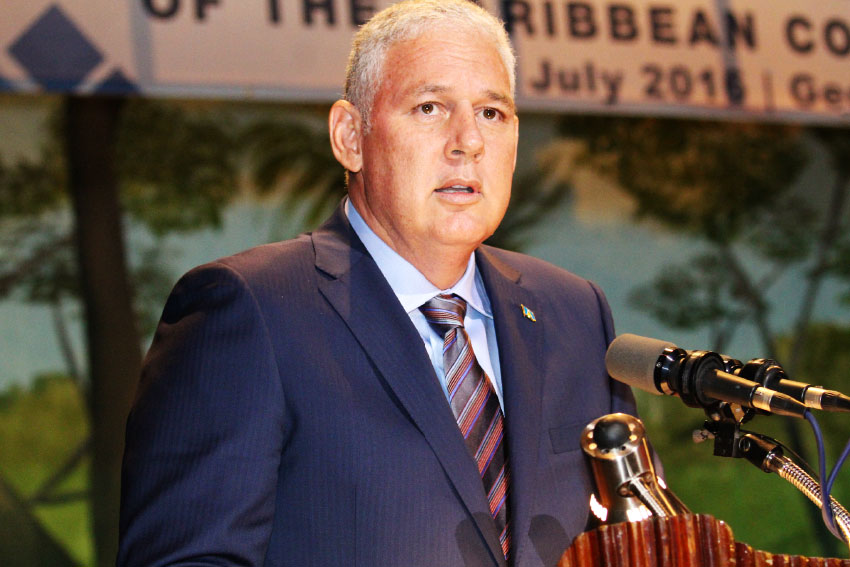
Baroness Scotland was fielding a question on disaster preparedness and she spoke about the way a natural disaster can wipe away a country’s income in an instant, rendering it moot.
She went on to cite Dominica as an example, stating that 230% of its GDP was wiped out by Hurricane Maria last year.
Chastanet then spoke to what the Baroness was saying but focused on St. Lucia’s own economic situation.
He stressed the importance of the Commonwealth Vulnerability Index and on St. Lucia being able to borrow for resilience building without adding to its debt.
As described in the Commonwealth’s Vulnerability Book, the Index is meant to “quantify the vulnerability of a country…” and thus “provide a means to identify vulnerable states”. Ultimately it; “could be used as an operational tool in determining whether small states should be accorded different treatment by the international development community.”
That “different treatment” is perhaps the aspect of the Index Chastanet was aiming for, as he spoke about his hope for St. Lucia to be allowed to borrow without increasing its debt.
“The goal here” he said, “is to convince the international organisations: allow us to borrow the money but for it to not be included on our debt profile.”
In a candid break down of the numbers, Chastanet painted a bleak picture of the ills and limitations of constant borrowing to finance the country’s different sectors and its debt.
He also mentioned that a country’s GDP is not the most important number when measuring a country’s economic health.
On GDP, the Prime Minister had this to say; “It’s just an estimate, it’s just a guide and for something as significant as concessionary funds, for development based on the GDP number is ludicrous.”
He pressed on, elaborating on his previous statement. He argued that “the most important number…for all St. Lucians is how much money debt is costing us relative to the revenue that we have.”
He then went into some detail about our debt financing cost and how it has grown exponentially since 2003.
“When you look at 2003, we were about $40 million a year in debt financing cost. Today we’re $170 [million] going onto $180 [million] and when we think of an overall expenditure of about 1.1 billion dollars; that’s a lot of money.”
When adding our current debt expenditure to today’s total public sector salary, the Prime Minister concluded that that does not leave a lot of money to run the affairs of the country.
“If you take $170/$180 million and you add it to $440 million in salaries, you’re talking about $610 million. All you have is $500 million left to be able to run your government.” Chastanet stated.
Pointing out the importance of the Vulnerability Index to St. Lucia’s fiscal viability, he spoke about the negative impact borrowing does to a country’s debt to GDP
“If you borrow the money,” Chastanet stated; “our debt to GDP is going to go up and if people are gonna continuously use that as a number to measure the viability of our countries, then we’re in trouble; and the worst part is, is that, that borrowing is gonna come at the expense of other borrowing.”
Echoing the words of the Saint Lucia Medical and Dental Association President, Alphonsus St. Rose, the Prime Minister then referred to the healthcare situation as, “a crisis”.
However, the Prime Minister went a step further, explicitly mentioning sector after sector, and calling each one a crisis.
“So we have a crisis in healthcare.” Chastanet began. He then said that we also “have a crisis in education. We have a crisis in infrastructure. We have a crisis in security.”
Chastanet then concluded that “all of those solutions require more money. Not one of those solutions [costs] less money.”
The Prime Minister then went on to decry the fact that “that money is gonna have to come from…more borrowing”, because as he put it, “we don’t run a budget surplus.”


